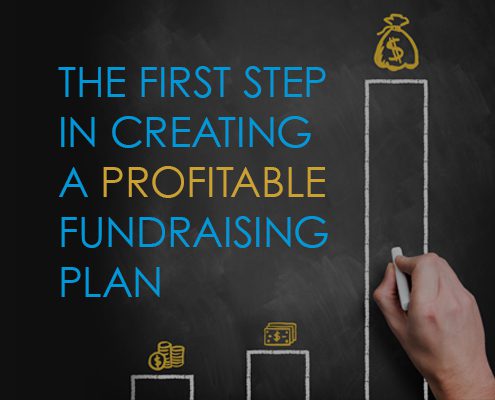The Must-Do First Step in Creating a Profitable Fundraising Plan

Are you and your team ready for a Fundraising Assessment? A Development Office Audit.
A SWOT of your fundraising program?
What exactly are these – and why would you do them?
They’re the first step to creating a killer fundraising strategy that can help you unlock your fundraising potential.
No kidding.
Receive expert advice. Direct to your inbox. Subscribe
Before your team can create a fundraising strategy and a plan of execution, you must, must, must step back and assess where you are.
Review how well things are going right now.
This is time to calmly, dispassionately, take stock, examine what you have to work with, and evaluate how well things are working.
A fundraising assessment gives everyone the opportunity to look at your fundraising program analytically.
Without emotion. Without drama. No more crisis mode fundraising!
Take These 5 Steps for a Smart Fundraising Assessment
Step one: Pull your data.
What does your data tell you?
- What are the trends?
- How about the numbers of current donors – are they trending up or down?
- How about your donor renewal rates and donor attrition?
- Event attendees? How about the number of donors in your annual gift clubs?
What about major gifts? Are you tracking Major Gift visits and asks?
You know what we love about data? The numbers don’t lie. You literally have facts upon which to build your plan.
Find out how we can help you achieve your fundraising goals with world-class consulting and custom training.
Always start with the data when you want to make a plan.
Step two: Ask the tough questions.
When you do a fundraising assessment, you have permission to ask politically awkward questions.
You can ask Cage Rattling Questions like:
Can we be honest about what’s working and what’s not working?
Are we wiling to ditch unproductive programs?
You can get an entire list of “tough questions” to ask about your fundraising strategy.
Step three. Assess your current fundraising results.
Review all your various fundraising programs – mailings, events, major gifts, grants, corporate and foundation support, digital strategies. What results are you getting?
- What’s working well? What’s working not so well?
- What can be improved or changed?
- What is eating up time and attention, but not paying off?
Where could you add resources and receive a significant jump up in revenue?
Don’t forget to assess other aspects that impact your fundraising success:
- your back office,
- board and leadership support for fundraising,
- data systems and
- internal culture of philanthropy.
It can be fun – and enlightening – to step back and evaluate everything. Include your board in this discussion!
Step four: Identify your fundraising challenges.
Yes, challenges are a part of life.
If you want to know how much you can raise, you must be willing to acknowledge what’s not working so well.
- Are there people who are impediments to good fundraising?
- Are you losing too many donors each year?
- Have you cut your fundraising budget and staff but not your fundraising expectations?
- Is your staff totally run ragged?
- Is your signature event losing steam?
Just be realistic.
Please.
Wistful thinking is not going to raise your money!
Being realistic will lead to smart decisions and planning. It will help you sleep at night too.
Always try to turn your challenges into your opportunities!
Step five: Identify your fundraising opportunities.
Every organization has special opportunities. What are yours?
Perhaps you have:
- A great location in town.
- A cause that is suddenly very popular.
- Were you recently in the news?
- A very popular gala or event.
- A new CEO or leader.
- New digital talent joining your team.
Take a look around. You might find some surprises you can play up and run with.
Sometimes amazing results can happen by building on opportunities.
Can you form a coalition? Can you build on key relationships?
Be alert. Be strategic. Be opportunistic, even.
Maybe a key relationship can offer opportunities to catapult your organization to a whole new level.
Pull it all together in your Fundraising Assessment.
Create a short document that includes:
- How effective is our current fundraising program?
- Where are the big opportunities to increase our fundraising revenue streams?
- Where can we need to focus time, energy and resources?
Bottom Line: An Assessment can uncover what’s holding your team back from raising big money.
You can find a template for a full Fundraising Assessment and annual Fundraising Plan in my Highly Profitable Fundraising Planning Toolkit.
The template will help you perform your own SWOT and assessment of your own program. You can use 10-Point set of checklists to help you determine where your best fundraising opportunities are.
It will help you step back from the weeds and look at how you can raise money in new and better ways.
When you create a smart, strategic Fundraising Plan for the coming year, you’ll be organized. You’ll be happier. And your organization will raise more money!
QUESTION: what are your challenges with your own Fundraising Assessment?
Leave a comment and let us know!


